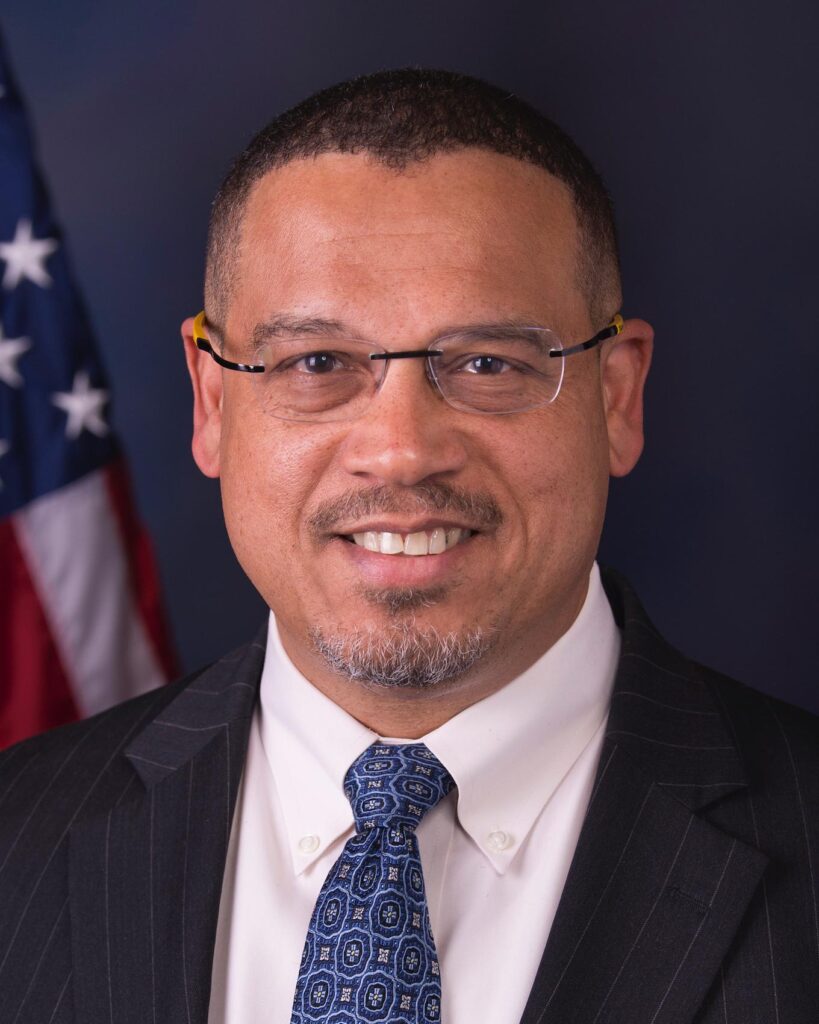Minnesota Attorney General Keith Ellison has declared that former President Donald Trump’s executive order targeting transgender athletes violates state law. The order, which restricts transgender students from participating in sports teams that align with their gender identity, faces legal scrutiny as Minnesota officials emphasize the importance of protecting the rights of transgender individuals under existing state anti-discrimination statutes. This development adds to the ongoing national debate over transgender participation in school sports and the legal boundaries of executive actions in this contentious area.
Minnesota Attorney General Challenges Trump Executive Order on Transgender Athletes
Minnesota’s Attorney General has formally contested the recent executive order issued by former President Donald Trump, which aims to restrict transgender athletes from participating in sports consistent with their gender identity. The AG argues that the directive not only undermines the rights of transgender individuals but also contradicts Minnesota’s existing anti-discrimination laws that protect gender identity in educational and athletic settings. By taking legal action, the state seeks to uphold its commitment to inclusivity and equitable treatment for all student-athletes.
The challenge highlights several key points of conflict between federal intentions and state protections, including:
- The executive order’s broad scope, which does not align with Minnesota’s tailored anti-discrimination statutes.
- Potential violations of Title IX as interpreted under current state law.
- Concerns over the punitive impact on schools and athletes who comply with state anti-discrimination policies.
| Aspect | Minnesota Law | Trump Executive Order |
|---|---|---|
| Gender Protections | Includes gender identity explicitly | Targets transgender athletes specifically |
| Scope of Enforcement | Applies statewide with educational focus | Federal agencies and funding consequences |
| School Compliance | Mandatory support for transgender students | Threatens withdrawal of federal resources |
Legal Grounds Cited for Violation of State Anti-Discrimination Laws
The Minnesota Attorney General’s office points to several specific provisions within state anti-discrimination statutes that the executive order purportedly breaches. Foremost among these is the Minnesota Human Rights Act (MHRA), which explicitly prohibits discrimination based on gender identity in educational settings, including athletics. By restricting transgender athletes from participating in sports aligning with their gender identity, the order is seen as a direct violation of protections guaranteed under this statute.
Additionally, the AG highlights state policies that emphasize equal access and inclusion for all students. Minnesota’s civil rights framework not only covers public institutions but also mandates that any policy or directive must not impose disparate impact or intentional discrimination. The following table outlines the key legal bases cited in the complaint:
| Legal Provision | Relevance |
|---|---|
| Minnesota Human Rights Act | Prohibits discrimination based on gender identity in schools |
| Minnesota Department of Education Policy | Ensures equal access to participation in extracurricular activities |
| State Civil Rights Enforcement | Mandates nondiscriminatory practices by public entities |
- Intentional Discrimination: The AG’s office argues the order enforces exclusion by design.
- Disparate Impact: Policies resulting in non-neutral effects that harm transgender youth are unlawful.
- State Supremacy: Minnesota law overrides any conflicting federal directives within state jurisdiction.
Implications for High School Sports and Transgender Athlete Rights in Minnesota
Minnesota’s stance sets a clear precedent for how schools must navigate the inclusion of transgender athletes in competitive sports. The Attorney General’s declaration challenges the authority of federal directives when they clash with state statutes designed to protect equality and prevent discrimination. This legal pushback reflects Minnesota’s commitment to uphold gender inclusion policies that align with the state’s Human Rights Act, which prohibits discrimination based on gender identity in educational settings.
For school administrators, coaches, and athletic departments, this decision emphasizes the importance of compliance with state law over external mandates. Key implications include:
- Reaffirmation of Athlete Protections: Ensuring transgender athletes have equal access to sports teams consistent with their gender identity.
- Policy Review and Training: Updating school policies to reflect Minnesota law and providing sensitivity training for staff to foster inclusive environments.
- Potential Legal Risks: Schools defying state guidelines may face legal challenges or loss of funding linked to discrimination claims.
| Aspect | Minnesota Law | Trump Executive Order |
|---|---|---|
| Gender Identity Protections | Explicitly protected in school sports | Limits transgender participation based on birth sex |
| Legal Enforcement | State law enforcement and civil rights Enforcement agencies oversee compliance | Federal agency directives with potential funding consequences |
| Scope of Impact | Applies to all public schools within Minnesota | Applies nationally but subject to state resistance |
| Effect on Funding | Funds preserved for compliant schools | Threatens withdrawal of federal funds for non-compliance |
Officials Urge Schools to Uphold Inclusive Policies Amid Federal-State Conflict
State officials are standing firm against federal directives that attempt to override Minnesota’s inclusive policies for transgender athletes. The Attorney General of Minnesota has publicly denounced former President Trump’s executive order as a direct violation of established state laws that protect the rights of transgender students in school sports. This stance highlights the growing rift between federal mandates aiming to restrict transgender participation and local jurisdictions defending inclusive educational environments.
Experts and education leaders emphasize the importance of maintaining policies that promote fairness and respect for all student-athletes, warning that conflicting mandates could lead to confusion and discrimination. Key points raised by officials include:
- Preserving equal opportunity for transgender youth in school sports programs
- Upholding state anti-discrimination laws that safeguard students’ rights
- Encouraging schools to resist federal pressures that contradict Minnesota’s legal framework
| Policy Aspect | Federal Executive Order | Minnesota State Law |
|---|---|---|
| Transgender Athlete Participation | Limits participation based on birth gender | Supports participation consistent with gender identity |
| Legal Enforcement | Federal directive with contested authority | State law protected by Minnesota courts |
| School Compliance | Mandates restrictions | Encourages inclusive policies |
Wrapping Up
As the legal battle over transgender athletes’ participation in Minnesota continues, the state attorney general’s challenge to former President Trump’s executive order underscores the growing tensions between federal directives and state civil rights protections. This case highlights the evolving debate over transgender rights in sports and the extent to which states can push back against federal policies they view as discriminatory. Further developments are expected as Minnesota’s legal proceedings move forward.





